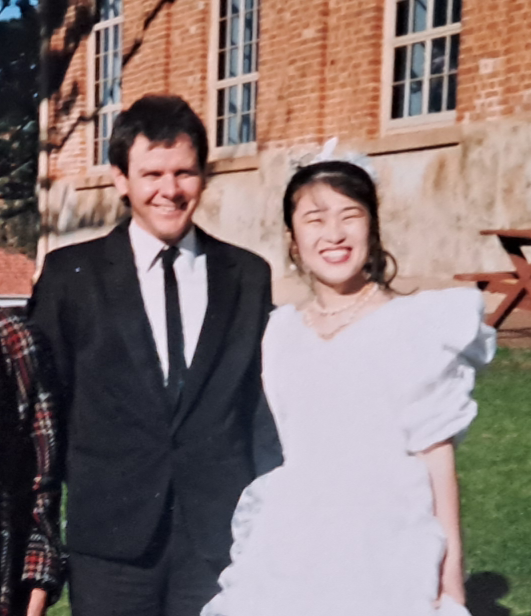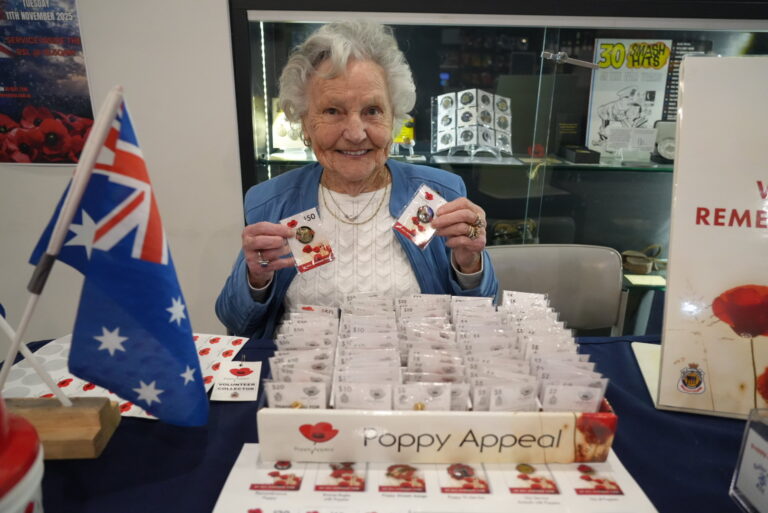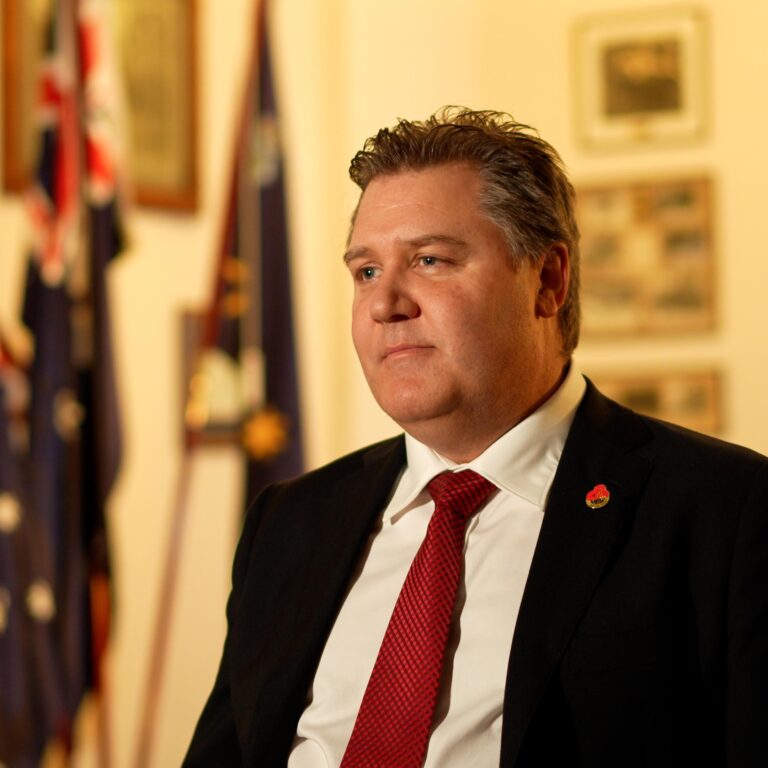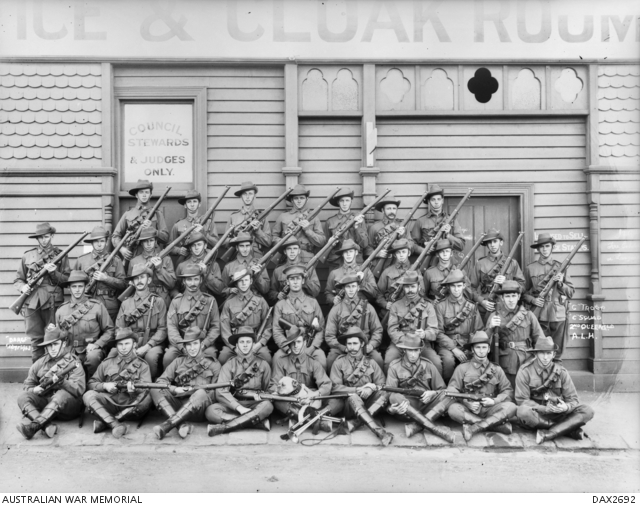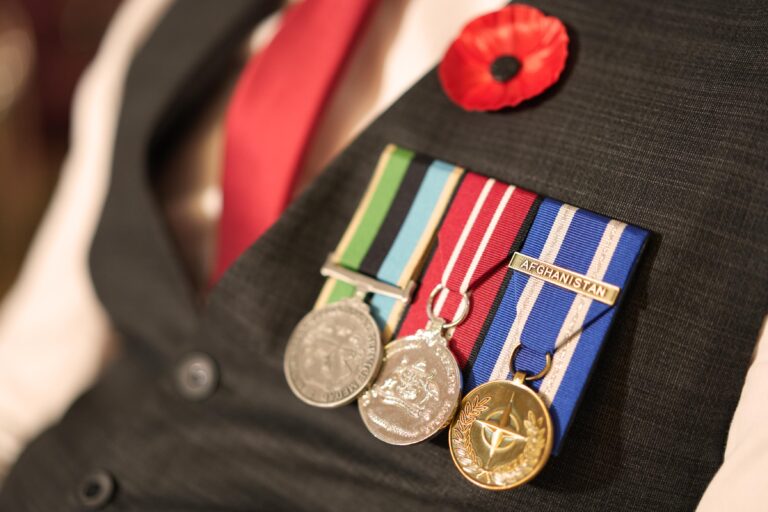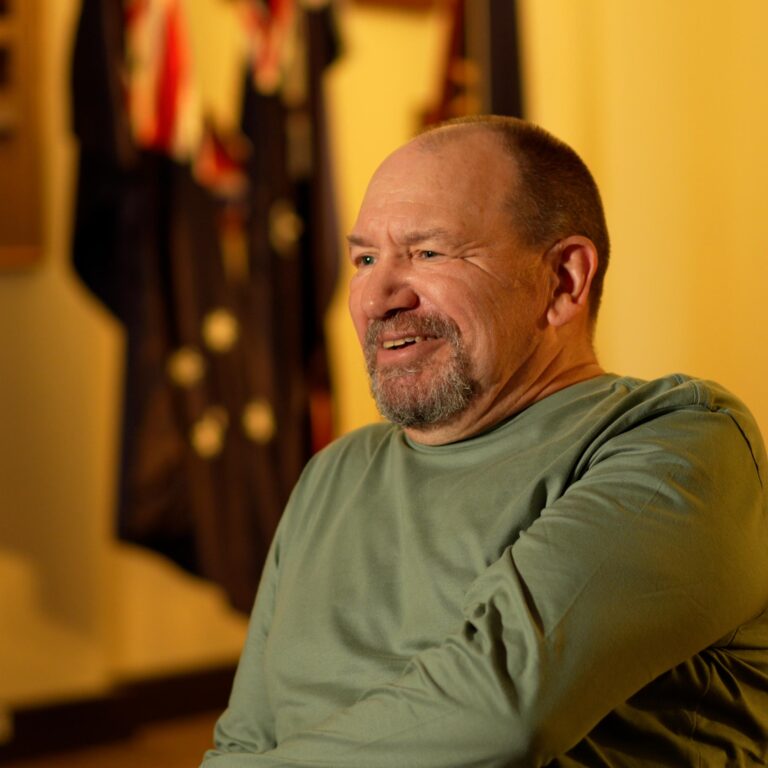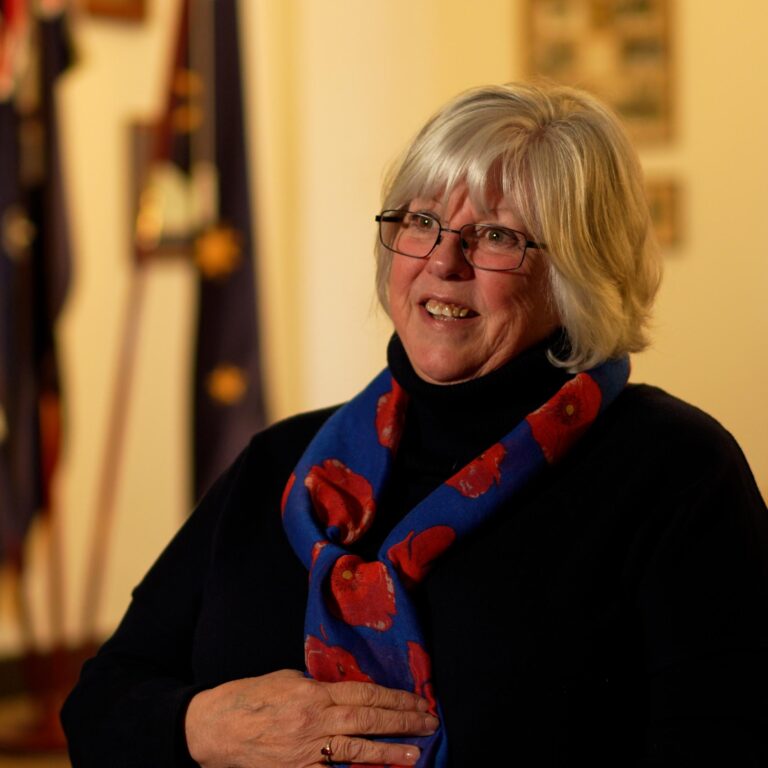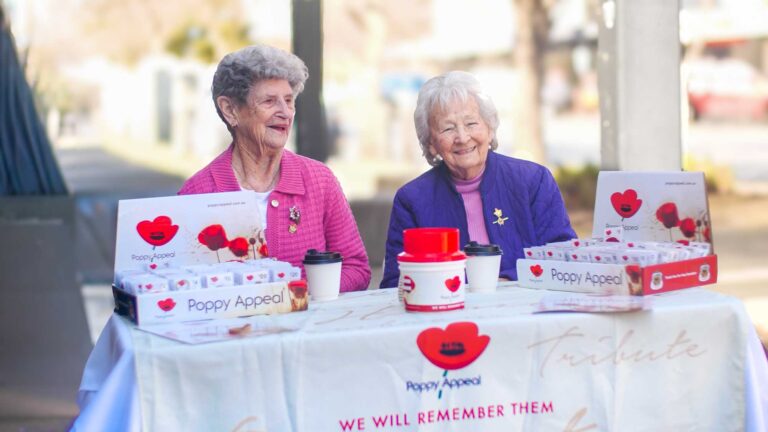THROUGH THE EYES OF A JOURNALIST

Written by Aileen Phillips
14 September 2022
Josh Murray was then a 23-year-old broadcast journalist working for what was the biggest commercial radio network in Australia. He was on a mission to deliver news of the unfolding political and humanitarian crisis to radio stations around Australia.
“What we committed to at 2UE was that I would go to Darwin and cover the arrival of refugees, but also of the UN staff. There were about 1500 UN staff who were evacuating from Dili into Darwin to set up the humanitarian aid effort there.”
As arranged, Josh spent about a week in Darwin covering the developments. That was until he was summoned to the Larrakeyah Barracks late one evening.
“A small group of Australian media nominees were asked to travel with the INTERFET force, which was being put together. It was all very secretive. We weren’t to return to our hotel rooms and then we waited overnight camped on the basketball court floor. We really didn’t know what was happening. But all being journalists, we knew we were in for it, we were up for whatever this was, but we weren’t quite sure what the opportunity was, except that it seemed that we would be travelling with the troops.”

The next morning before dawn, Josh witnessed a sight he will never forget, describing it as a massive industrial operation taking to the skies of Darwin.
“We bussed to the airfield in the dark. It was just Hercules after Hercules after Hercules lined up on the runway, propellers spinning, being loaded with pallets of gear and as soon as they were loaded, they would just tear down the airstrip and go.”
Josh, together with other journalists, boarded a Hercules and strapped in.
“The pallets rolled in after us, so you know you’re sitting there with your knees right up against the equipment as it was brought in.”

Looking out as the Hercules came into land at Comoro Airfield, a barren landscape of scrub and bush stretched as far as the eye could see, the only sign of life was the Australian troops crouching in the grass, weapons poised ready to protect the airstrip. As they taxied to a stop, the back door of the Hercules swung open, exposing an intense heat. And just like he experienced in Darwin, the noise and smell has never left him.
And there, from the side of the airfield almost drowned out by the roar of the Hercules jets, Josh crossed live into the Alan Jones breakfast program to deliver breaking news – revealing that the Australian military had landed in what was then Indonesian sovereign territory.
What unfolded over the next 10 or so days proved to be life-changing for Josh in many ways, even though he did not realise it at the time. As he made his way into Dili, which he describes as a post-apocalyptic war zone, filled with burning buildings and not a soul in sight, they settled at the remains of the Hotel Turismo, which became the base for many of the journalists.
“It had been absolutely destroyed, set on fire, walls were kicked and punched in, the sewer system was all smashed and broken up.”
JOSH MURRAY
To make it somewhat habitable, they spent the best part of that day cleaning and tidying.
“I came up with my own lodgings plan, where I found a dining table and turned it over, so it had four legs up in the air and then the army had given us mosquito nets, so I sort of strung that from the legs and had my own little room.”
At the centre of the hotel was a courtyard, allowing people to freely move around or congregate. Up in the rooms, it was a different story.
“You would basically get on your hands and knees to stay down because you would never stand up at the windows.”
Over the coming days, the former hotel became somewhat of a work base for the journalists.
“Peter Cosgrove [Commander of INTERFET] would come there or operate from there on a semi-regular basis. And all the leaders would come through there and do their press conferences.”

As word spread that Australian troops were in town, Josh witnessed a changing landscape. Refugees who had fled to safe havens in the mountains started making their way back into the city.
“Hotel Turismo is on one side, there was a road and then basically the waterfront. And that strip of dirt and grass between the road and the water all the way through Dili was filled with families camping and putting up tarps. They would throw a tarp over a tree branch or with some string and there were just thousands gathering because they were close to the forces.”
Covering the story was difficult at times, with journalists often targeted by militia. As Josh reported at the time, the murder of Dutch journalist Sander Thoenes was a stark reminder of the precarious situation everyone was in.
The very next day, another gruesome discovery. It became known as Dili’s so-called House of Horrors.
“One day, some kids who came and sought us [a group of journalists] out at the hotel, led us down probably around a 20-minute walk and we ended up in the house of one of the independence campaigners. It was a torture chamber effectively and there was a well in the middle of the house where bodies had been dismembered and discarded.”
The horror for the group of journalists continued.
“On the walk back there was a fire. I remember the discussion in this group – do we investigate, do we steer clear?”
And then, as if out of nowhere, a Land Rover carrying Australian troops arrived.
“They were certainly not shy about conveying that things were heating up, that we were in danger, and they ferried us back to the base.”
JOSH MURRAY
It turned out the fire was a trap. A 44-gallon drum had been set alight in an alleyway to lure the foreign journalists to the scene, only for an attack to be launched on them.
Focused on delivering hourly updates and crossing into various radio programs for interviews throughout the day, it was not until later Josh processed many of his experiences.
“To look down into a well in the ruins of this house and to understand what was there with dismembered body parts and the smell is definitely something that stays with you and it’s not something even in any of our reports we could convey the gravity of those discoveries.”
He shares story after story of the many life-threatening, near-misses he experienced during his time in Dili, always bearing in mind the fine line between capturing an honest story and taking unnecessary risks.
During these opening weeks of the INTERFET campaign, Josh was consumed by the lives of the East Timorese people. He saw his job as both a privilege and responsibility. The story had become so much bigger than a military operation and politics.
“Kids were there and they were trying to get to safety and once you saw that human side of it, you saw what really mattered in Timor.”
JOSH MURRAY

Like many of the journalists who covered INTERFET have shared over the years, Josh was conflicted about leaving East Timor and grappled with the decision for a couple of days.
“When I left, I was in agreement with it. But as soon as I set foot on the Hercules to fly back, I felt it was the wrong decision. And I regretted it.”
With time to reflect, Josh realised it was the right time.
“I think any journalist leaving a story that is still unfolding would feel the same way…but the reality was by the time I left, things were settling into a more stable routine of humanitarian repatriation back into the townships and military operations that were not being met with the dramatic unfolding of the first weeks. Really important for Dili and Timor, but hard to convey to the general public. You could see life was beginning to settle, so that’s why we decided to return.”
Not only had Josh lost a considerable amount of weight, he had also lost perspective on the outside world.
“Having lived on ration packs for the period I was there, I remember standing in Woolworths admiring all the tinned food varieties, then having this moment of realisation that I was back in Sydney in a grocery store with easy access to fresh fruit and vegetables.”

And parts of his dream job prior to his INTERFET deployment had lost some of its lustre.
“Having done this and being part of the INTERFET deployment on that morning, not just to cover it but to fly in as an expeditionary force in a scenario like that, was the piece that really impacted me. I did find that I struggled to readjust to daily news routines, and when I was deployed to bigger or longer-running stories after that, I really relished the opportunity.”
Nonetheless, his hourly updates ultimately won him the prestigious Walkley Award for Radio News Reporting. The judges commended his ability to get and then tell a story in a direct and exciting way. According to The Walkley Archive, “The INTERFET deployment was a big story, one he managed to cover from the inside. He displayed courage, stamina, persistence and good news sense.”
He is also particularly proud too that his entry was chosen because, as it mentions in the judge’s commentary, “he managed to convey the drama and horror of the situation that confronted the troops.”
The experience was an insight into life on the line for Australian troops that Josh will never forget.
“They were away from their families, and that they were facing this risk, but they were deadly serious about what they were doing and you knew that that commitment to do the right thing was actually driving the Force all the way through.”
“We’re proud of the way the team brought peace to a horrific situation. And it’s not been an easy journey since. But that was a very brave group, and well organised and well run, that moved in there in September 1999 and conducted themselves with the utmost professionalism.”
JOSH MURRAY
For Josh, his experience was ultimately one that triggered a new chapter in his life, moving on from the world of broadcasting to communications and political roles and then eventually relocating to the United Kingdom, where he is now a London-based director for global construction company Laing O’Rourke.
But there is no doubt that his stint in East Timor helped to shape the impressionable and less than invincible young man that he was. To this day, he is often driven both professionally and personally by the life lessons he walked away with.
“I think for me it’s been the hallmark of just being able to adapt. I went there to tell a story, one that required you to put yourself as much as you could in the shoes of the people you saw, whether it be the soldiers or the refugees and the people who had suffered. You always have to have that empathy with what other people are doing.”


